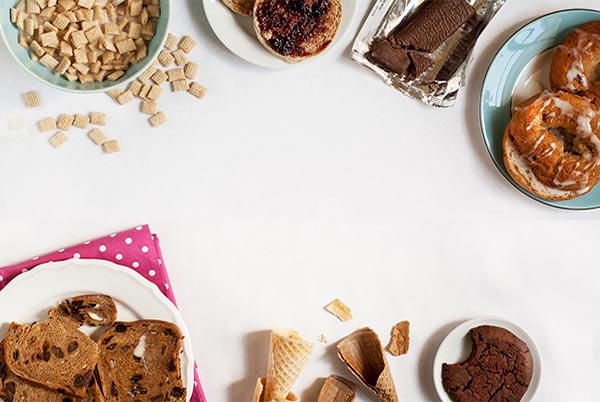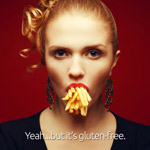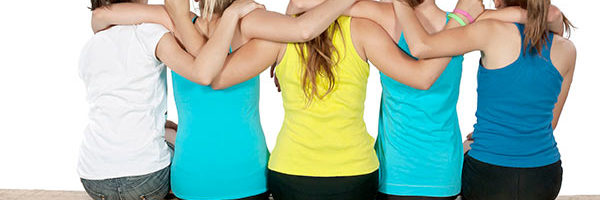
Are You Eating Healthy…Or Just Gluten-Free?
Miley did it. So did Kim K. And let’s not forget Lady Gaga.
What am I talking about? Did they all sell their souls to maintain their notoriety? Well … yes, actually. But they also went gluten-free and were more than happy to spew nonsense about how by simply going gluten-free, they were able to drop those pounds, get healthy, and in Lady Gaga’s case, fit into a dress made entirely of meat.
But did going gluten-free really help them lose weight?
I will let you in on a little secret that will make some food companies shudder: unless you have celiac disease or gluten intolerance (NCGS, short for non-celiac gluten sensitivity), giving up gluten has nothing to do with being healthier. Sure, to the novice it might seem like it does. The gluten-free section in your local supermarket is most likely located in the same aisle as other health foods. And since it seems like everyone and their mother is aboard the gluten-free bandwagon these days, an entire population can’t be wrong, can they?
Actually, they can be … and they are.
Here are some amazing numbers for you to digest (don’t worry, they’re gluten-free). Even though it is estimated that only 1% of the population has celiac disease and another 6% has NCGS, the gluten-free products market is expected to reach $6.2 billion by 2018. You read that right: $6.2 billion. And here’s the kicker: 46% of this staggering amount will be spent on gluten-free bakery and confectionary products, followed by another 20% on gluten-free snacks. In other words, we’ll be spending $4.1 billion on gluten-free sugar and snacks. But that’s not even the best part. Research has shown the most important factor behind buying gluten-free products is … wait for it … that they are considered healthier than conventional products. Shoppers are erroneously thinking they are being healthier simply by eating foods without gluten, even if the foods themselves are extremely unhealthy.
I was diagnosed with celiac disease in September of 2007. I am as gluten-free as they come. I have never cheated and I neverwill. I’m ridiculously careful both at home and when I go out (and a big shout out to Mrs. Dude for keeping me safe and for being the best dang “wife-of-a-celiac” that a guy could ask for). And yet, in these past six years, I can count on one hand the number of stretches where I have truly felt healthy. I have suffered stomach pain, severe exhaustion, brain fog, back pain … all of the classic celiac symptoms that I know many in our community continue to deal with.
In September of 2012, I reached the end of my rope. I simply couldn’t live this way any longer. I was tired of feeling miserable and even more tired of being a burden on my family. I knew I had to make a drastic change. So for 30 days, I gave up a plethora of other food groups in addition to gluten: alcohol, grains, soy, corn, dairy, sugar. Yes … I said alcohol!
I ate nothing but whole foods for the full 30 days: meat, fish, veggies, and a bit of fruit; all naturally gluten-free foods. The results were absolutely astounding. Not only did I lose 12 pounds on a pretty slim build to start with, but by the end of the month, my body stopped aching and my energy level soared.
 It was then that I decided that I needed to stop eating just gluten-free and start eating to live the best life I could possibly live. And if you continue to struggle with your health, it’s something I’d like you to try, too.
It was then that I decided that I needed to stop eating just gluten-free and start eating to live the best life I could possibly live. And if you continue to struggle with your health, it’s something I’d like you to try, too.
I know it’s hard. I mean, what’s the first thing most of us did when we were first diagnosed with celiac disease or NCGS? We went to the grocery store, made a bee line to the gluten-free aisle, and filled our shopping carts with what I like to call “replacement foods.” And why? So we could feel normal.
“I can’t give up pizza!” Phew … I can buy gluten-free pizza.
“I can’t give up pasta!” Phew … I can buy gluten-free pasta.
“I can’t give up cookies!” Phew … I can buy gluten-free cookies.
I could go on, but I think you get the point.
The problem is that a majority of these foods are nutritionally deficient. There is a very popular cereal on the market that splashes gluten-free across the front of the box. The box even says it’s “simply nutritious.” Now let’s take a look at the first seven ingredients: corn, corn meal, sugar, honey, salt, molasses, brown sugar syrup. Really? And they’re promoting it as healthy? How is this even legal?
But the thing is I had this cereal almost every morning for 5 years because I bought into the theory that because it’s gluten-free, it must be good for me. As Chandler Bing from Friends would say, “Could I have been more wrong?”
There are some gluten-free food manufacturers that are more than happy to feed us this garbage because they know the emotional attachment people have with eating. They know the intense fear celiacs have of losing their lifestyle as they know it. And naturally, they know the enormous profit they can make off of us.
I have been to a number of celiac awareness functions. Honestly, it’s not about awareness. It’s a gluten-free food orgy. It’s table after table of food that is simply not good for our bodies. But because it’s “gluten-free,” then hey it must be good for us! Who cares if it’s twice as fattening and three times as expensive? Look. I hate to come across as a preacher because frankly, nobody likes being preached to. In no way am I talking about living a life of deprivation. We all deserve treats here and there and sometimes making a quick meal with processed food is just going to have to do.
Fortunately food manufacturers are making more and more products for us but many 0f them should be reserved for what they are—the occasional treat or convenience, not the mainstay of our diets. If you are struggling to feel alive and vibrant and you are looking to give your body a restart, forget eating just gluten-free and start eating healthy … even if it’s just for 30 days.
We all deserve to feel good.
ABOUT THE AUTHOR:
Gluten Dude, a frustrated celiac and 2013’s Gluten-Free Blogger of the Year, is the man behind www.glutendude.com, a popular blog filled with humor, advice, and a passionate gluten-free community.



